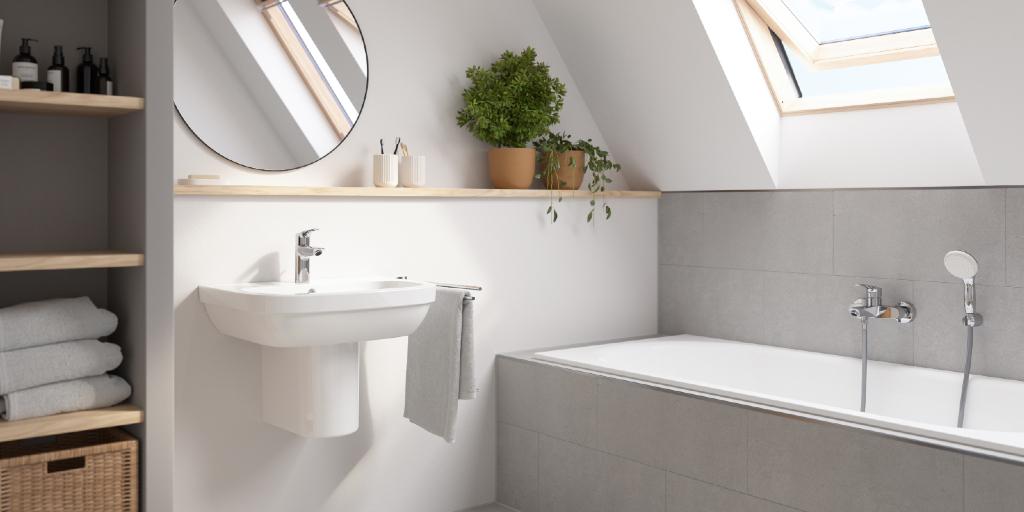Going to the toilet, washing our hands – these are daily routines that we don’t think much about. For most of us, sanitary facilities with clean water are a matter of course, but many across the globe are facing a different situation: 2 billion people lack basic sanitation, 673 million practise open defecation regularly[1] and 40% of the world’s population do not have access to handwashing facilities and soap at home.
As a result of unhygienic water and sanitation, 700 children under five die every day from diarrheal diseases. The lack of sanitation services also has a particular impact on women and girls who are exposed to the threat of violence and harassment, and the Covid19 pandemic has exacerbated the vast inequities in access to water, sanitation and hygiene.
In 2018, Unicef and LIXIL created a bold, new partnership called ‘Make A Splash!’ – Unicef’s first global shared-value cooperation in water, sanitation, and hygiene (WASH). It combines Unicef’s WASH sector leadership with LIXIL’s global expertise in toilet design and innovation to tackle the sanitation and hygiene crisis.
As part of LIXIL’s brand portfolio, GROHE is launching its ‘Energy for Life’ campaign, which will take place from May to August in 13 countries across EMENA[2] to raise awareness and support partnership activities: GROHE will donate €1 for every participating GROHE shower system or thermostat purchased to help provide a child with access to a toilet at home or a school with bars of soap.
“LIXIL makes better homes a reality for everyone, everywhere. As a global organisation, sustainability is at the heart of what we do and we have the responsibility to leverage our expertise to make a positive impact on the world. But sadly, access to basic sanitation and hygiene still remains one of the greatest challenges today, and LIXIL is committed to make toilets and handwashing accessible for all through its diverse and inclusive brand portfolio. GROHE has always supported the ‘Make a Splash!’ partnership through multiple internal fundraising activities but today I take great pride in reaffirming our support with the ‘Energy for Life’ campaign, that invites end users to help drive change,” said Jonas Brennwald, leader LIXIL EMENA and co-CEO Grohe AG.
“Growing up in a clean and safe environment is every child’s right. Basic toilets and handwashing facilities at home and school are critical to keep children healthy and prevent the spread of disease. We appreciate GROHE’s support to the LIXIL and Unicef ‘Make a Splash!’ partnership, which will help to ensure more children have access to clean, safe toilets and hand hygiene so they lead healthier lives,” said Carla Haddad Mardini, director, Private Fundraising and Partnerships Division, Unicef.
A bold mission: LIXIL and Unicef are tackling the sanitation crisis
The ‘Make a Splash!’ partnership contributes to Sustainable Development Goal target 6.2 “to achieve access to adequate and equitable sanitation and hygiene for all, and end open defecation, paying special attention to the needs of women and girls and those in vulnerable situations”. Initially focusing on the three key countries of Ethiopia, Kenya, and Tanzania, and on developing a sanitation economy, the partnership builds on LIXIL and Unicef’s respective strengths to deliver on a shared ambition to tackle the global sanitation crisis.

As Unicef changes people’s attitudes about open defecation and the use of poor, unsafe facilities, people are demanding better sanitation and hygiene services. LIXIL helps meet this demand through its SATO toilet products, which provide safe, affordable and sustainable solutions for communities to improve and sustain proper sanitation and hygiene.
In response to the Covid19 pandemic, LIXIL devised the SATO Tap, an affordable and innovative handwashing station for low-income households that lack access to running water. The SATO Tap consists of a plastic base with a soap holder and a nozzle that can be fitted with widely available plastic bottles. It can be operated with a simple nudge, ensuring minimal contact and releasing just enough water to practice safe hygiene.
SATO toilets were first introduced in 2013. Featuring a counterweight trap door that helps prevent unpleasant odours and insects, a SATO toilet consumes 80% less water to flush than a conventional toilet.
SATO aims to be a self-sustaining social business by establishing a local Make, Sell, Use cycle in the community – creating jobs and allowing local manufacturers and stakeholders to continue the business independently to help communities continuously improve sanitation.
‘Make a Splash!’ and support the partnership via this link
Unicef does not endorse any company, brand, product or service.
For further information and press material, please see the following link
Follow us on social media via Facebook, Twitter, Instagram, LinkedIn and YouTube
[1] Data from WHO and Unicef Joint Monitoring Programme for Water Supply, Sanitation and Hygiene.
[2] Austria, Belgium, Denmark, Egypt, France, Germany, Italy, Morocco, Netherlands, Poland, Russia, Spain and the UK.
